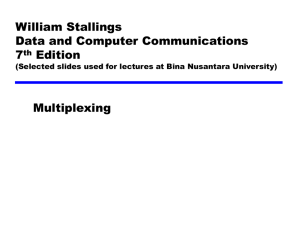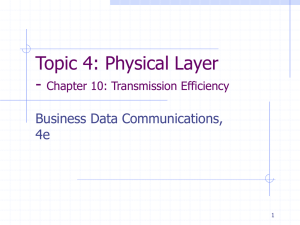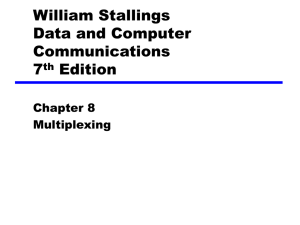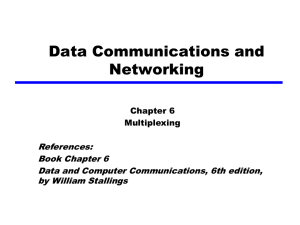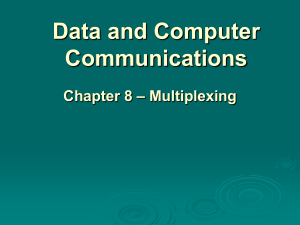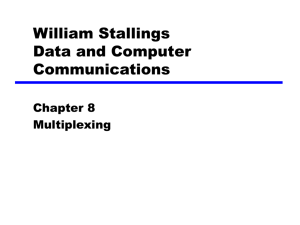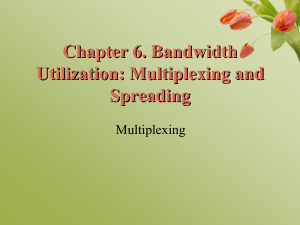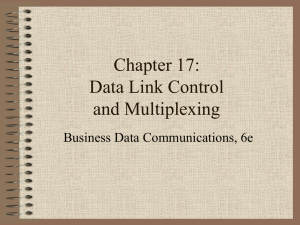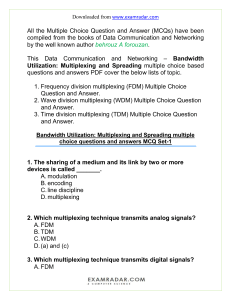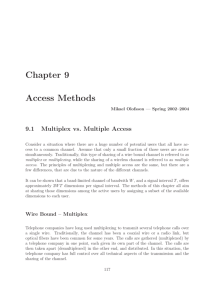FDM Multiplexing & Demultiplexing: Overview & Comparison
advertisement
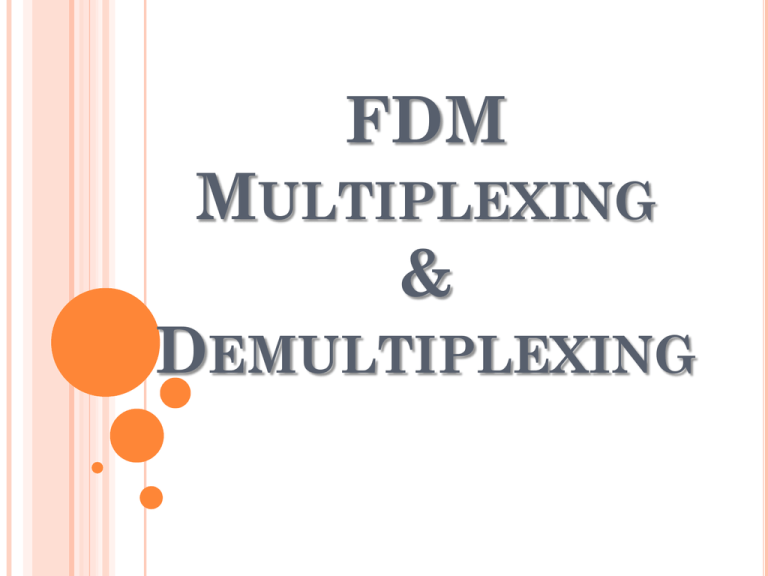
FDM MULTIPLEXING & DEMULTIPLEXING FREQUENCY DIVISION MULTIPLEXING - A number of signals can be combined into a composite signal suitable for transmission over a common channel. - Each signal is modulated using different carrier frequency. - The signals must be kept apart so that they don’t interfere with each other, and thus, they can be separated at the receiving end. BLOCK DIAGRAM OF FDM MULTIPLEXING BLOCK DIAGRAM OF FDM DEMULTIPLEXING Band pass filters Fo=f1,f2,or f3. B.W=2W Low pass filters EXAMPLE FDM AND TDM In FDM, the total channel bandwidth is divided into smaller portions and all messages are sent at the same time using different frequencies . Thus, the data can reach its destination more rapidly. In TDM, the time is divided into slots and each signal uses all of the bandwidth at a time. Thus, TDM provides greater flexibility and efficiency than FDM , as the width of the allocated frequency cannot be dynamically changed using FDM. In FDM demultiplexing ,band-pass filters are needed. These filters are relatively expensive and complicated to construct and design. Thus, using TDM is relatively more simple and less costly.
